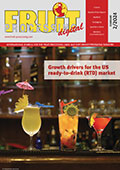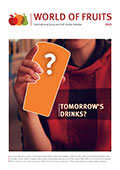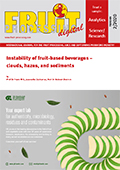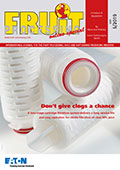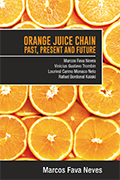PepsiCo’s Naked Juices Mislead Consumers, Says Lawsuit
PepsiCo misleadingly markets Naked Juices as predominantly containing high-value ingredients such as…
 PepsiCo misleadingly markets Naked Juices as predominantly containing high-value ingredients such as acai berry, blueberries, kale, and mango, when in fact the predominant ingredient in the product line is usually cheap, nutrient-poor apple juice, according to a lawsuit filed today. The nonprofit Center for Science in the Public Interest says that “NO SUGAR ADDED” claims on Naked labels imply that the products are low in sugar, when in fact, the drinks are high in sugar. What’s more, the company fails to prominently disclose that the drinks are “not a low-calorie food,” as required by the Food and Drug Administration.
PepsiCo misleadingly markets Naked Juices as predominantly containing high-value ingredients such as acai berry, blueberries, kale, and mango, when in fact the predominant ingredient in the product line is usually cheap, nutrient-poor apple juice, according to a lawsuit filed today. The nonprofit Center for Science in the Public Interest says that “NO SUGAR ADDED” claims on Naked labels imply that the products are low in sugar, when in fact, the drinks are high in sugar. What’s more, the company fails to prominently disclose that the drinks are “not a low-calorie food,” as required by the Food and Drug Administration.
The nonprofit nutrition and food-safety watchdog group, along with the New York law firm Reese LLP, filed suit in United States District Court for the Eastern District of New York on behalf of consumers in California and New York. The plaintiffs had purchased Kale Blazer, Green Machine, and other Naked beverages.
Labels for Naked Juice Kale Blazer feature leaves of kale and other leafy greens and two cucumber slices. “Kale is the king of the garden,” according to the text on the side of the bottle, which continues: “And, when it’s blended with cucumber, spinach, celery and a pinch of ginger, you get a royal roundtable of yum. Long live greens.” Advertisements for the product on social media and elsewhere similarly exaggerate the presence of kale in the product, stating “…you might actually live forever because kale has tons of antioxidants that combat aging,” and that the drink is a way to “pack more kale into your diet.”
"Consumers are predominantly getting apple juice, or in the case of Kale Blazer, orange and apple juice," says CSPI litigation director Maia Kats. "They’re not getting what they paid for." The primary ingredient in Kale Blazer is orange juice. The third ingredient is apple juice. And nowhere on the Kale Blazer labels or other marketing materials are oranges or apples pictured. And, like most Naked Juices, its label boasts, “NO SUGAR ADDED,” implying that the product is low in sugar. In fact, a 15 oz. bottle has eight teaspoons of sugar, largely from orange and apple juice. PepsiCo inconspicuously describes the drink as a “Kale flavored 8 juice blend,” but CSPI says that disclosure is overwhelmed by the kale imagery in violation of federal laws and regulations. In comparison, a 12 oz. can of Pepsi has 10 teaspoons of sugar.
Outdoor advertising for Kale Blazer has included statements such as “have your kale and drink it too,” implying that the product is predominantly, if not exclusively, kale. “Consumers are paying higher prices for the healthful and expensive ingredients advertised on Naked labels, such as berries, cherries, kale and other greens, and mango,” said CSPI litigation director Maia Kats. “But consumers are predominantly getting apple juice, or in the case of Kale Blazer, orange and apple juice. They’re not getting what they paid for.”
The proposed class action complaint contends that PepsiCo has unjustly enriched itself and asks the court to provide injunctive relief and monetary relief for misled consumers.
CSPI’s litigation department has won numerous agreements improving the marketing or labeling of other products, including an agreement with Coca-Cola prohibiting deceptive statements on its Vitaminwater line and requiring better disclosure of its sweeteners. CSPI is currently in court in litigation against General Mills over Cheerios Protein (which has negligibly more protein but 16 or 17 times as much added sugar as original Cheerios) and against CVS over its Algal-900 supplement (which makes unsupportable claims that it helps memory).
Scource: cspinet.org



